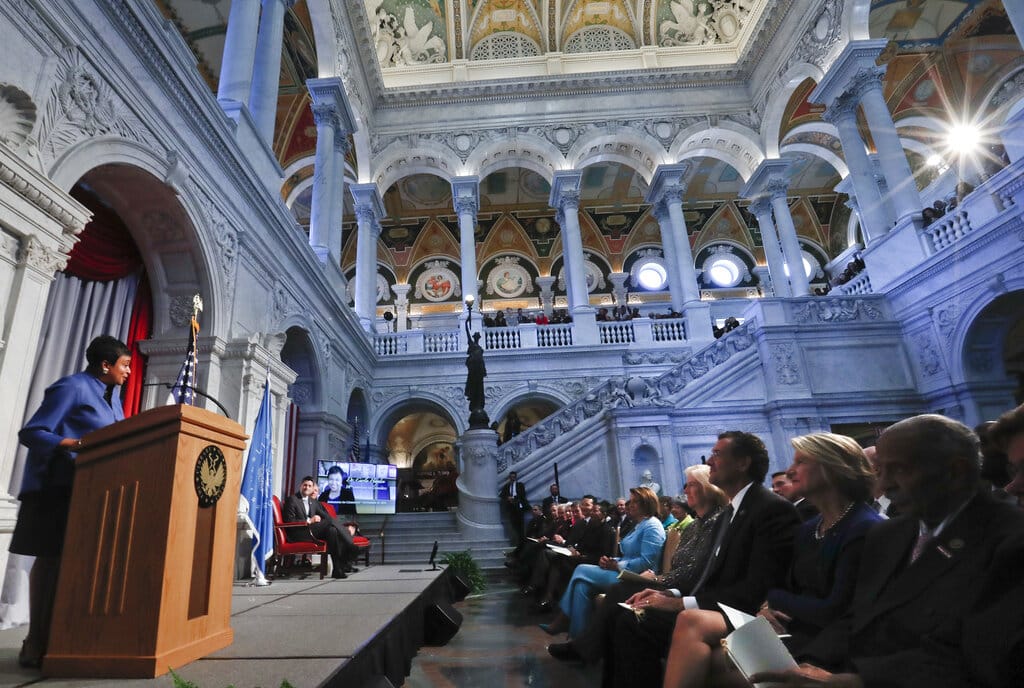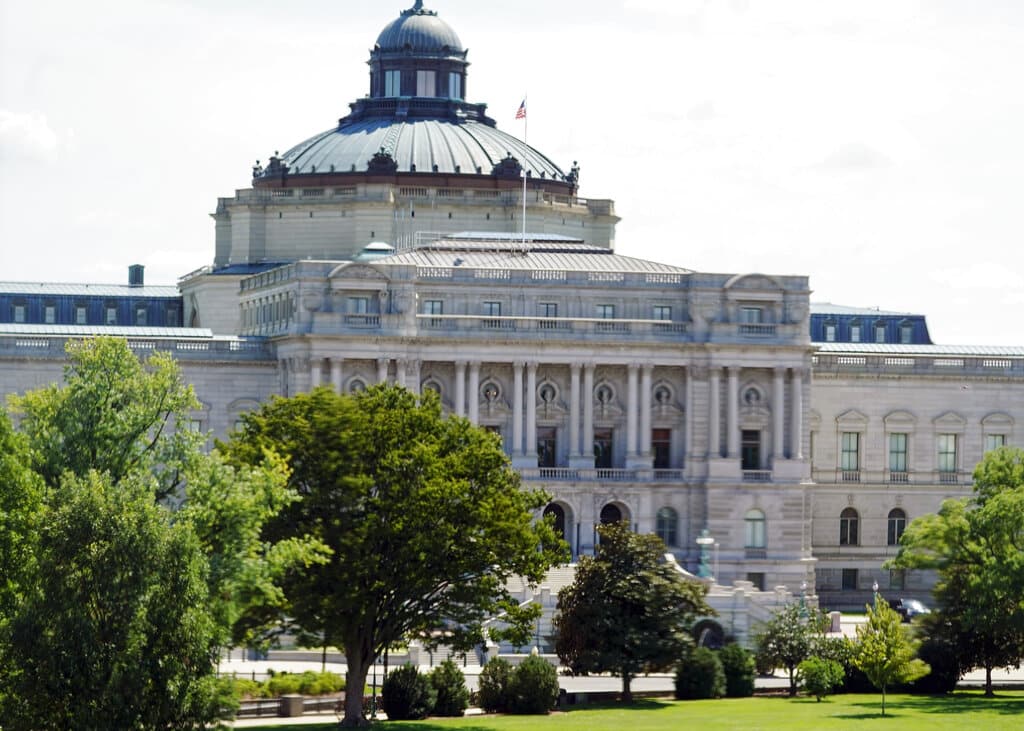The Library of Congress, which Congress founded in 1800 when John Adams was president, has been described as the nation’s “oldest federal cultural institution” (Italie 2025). In addition to being the world’s largest library with more than 100 million books, it has vast archives about the nation’s history and is primarily open to adult researchers. Thomas Jefferson sold his books to the Library of Congress after the British torched the Capitol during the War of 1812.
The library manages the Congressional Research Services, which provides the legislative branch with confidential reports, which are protected in part by the Speech and Debate Clause. It also controls the copyright office.
Trump’s controversial firing of head librarian
In 2025, President Donald J. Trump announced that he was firing Carla Hayden, the first African American or woman to head the institution.
The move was similar to when Trump dismissed board members of The Kennedy Center, appointed a loyalist as leader, and had himself selected as its chairman (Elliott 2025),
Hayden had been appointed by President Barack Obama in 2015 and was confirmed by the U.S. Senate to a 10-year term in 2016 by a vote of 74-18 (Blanchet 2025). Trump gave no explanation for her dismissal although his press secretary claimed that Hayden was “putting inappropriate books in the library for children” (Miller and Hulse 2025) — even though the library is only open to adults and is not a lending library — and claimed that she had pursued diversity, equity, and inclusion policies (Green 2025).
In similar fashion, Trump also had previously issued an executive order designed to exert control over displays at the Smithsonian Institution that he thought unduly emphasized negative aspects of U.S. history.

The 14th Librarian of Congress, Carla Hayden, speaks after taking the oath of office during a ceremony in the Great Hall of the Library of Congress in Washington, Wednesday, Sept. 14, 2016. Hayden, a former Chicago children's librarian, was the first woman and African American to serve in the role. President Donald Trump removed her in 2025 although she had not finished her 10-year post. (AP Photo/Pablo Martinez Monsivais)
After firing Hayden, Trump designated Deputy Attorney General Todd Blanche as the acting librarian. It is unusual, and arguably unconstitutional, for an individual to hold simultaneous posts in the legislative and executive branches. Article I, Section 6 of the U.S. Constitution specifically prohibits anyone holding “any Office under the United States” from serving in Congress.
Not surprisingly, Trump’s authority to fire Hayden has been questioned, and Robert R. Newlen, the top career officer, has claimed to be the acting head. Moreover, Trump chose Brian Nieves, Blanche’s chief of staff, as acting deputy librarian.
Trump also fired Shira Perlmutter, the register of copyrights and the top copyright official, and replaced her with Paul Perkins, an associate attorney general. When Nieves and Perkins showed up for their jobs, library officials called Capitol Police, and Nieves and Perkins left the premises (AP 2025).
The library has also resisted granting access to the Department of Governmental Efficiency (DOGE). Some individuals have expressed concern that the government efficiency department might be seeking to open copyrighted material to AI training without compensating authors.
'Library of Congress, not the library of the executive branch'
As its name suggests, the Library of Congress was created by congressional legislation and has long been considered to be a legislative rather than a presidential institution. Some Republican lawmakers have joined Democrats in claiming that Trump’s actions violate the doctrine of separation of powers. This doctrine, articulated in the Federalist Papers and reflected in the creation of separate legislative, executive and judicial branches, is designed, like the First Amendment and other provisions within the Bill of Rights, to protect against any branch of government from exercising undue power over the other coordinate branches or over the rights and liberties of the people.
Representative Hakeem Jeffries, a Democrat from New York, observed: “It’s the Library of Congress, not the library of the executive branch. The executive branch needs to stay in its lane” (Miller and Hulse 2025).
John R. Vile is a political science professor and dean of the Honors College at Middle Tennessee State University.

